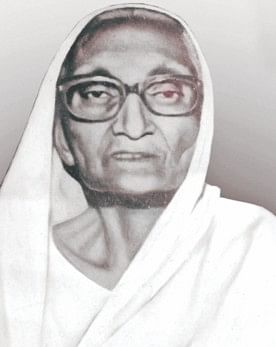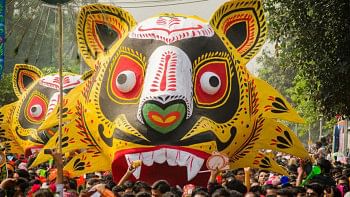28th death anniversary of Manorama Basu Masima

The 28th death anniversary of Manorama Basu Masima, legendary political, human and women's rights activist of the southern region, was observed on Thursday in Barisal with solemnity.
A memorial discussion on the life and achievements of Masima was held at Matri Mandir Govt Primary School, founded by Masima, at Manorama Basu Road (Kawnia Branch Road) of the city.
Manorama Basu Srmiti Trust organised the programme, presided over by Nikhil Sen. Among others, Jibonkrishna Dey, Rabeya Khatun Anowar Zahid, Tarun Chanda, Narayan Saha, Biswa Nath Dasmunshi, Nigar Sultana Hanufa were the speakers at the programme.
The speakers and participants at the programme while paying tributes to Masima , emphasised the need to follow in her footsteps to restore human and women's rights in our society without aligning with religious or political beliefs and superstitions.
They demanded that school text books incorporate the life of Manorama Basu Masima as a subject of study.
Marorama Basu, later famous as 'Masima' (maternal aunt), was born in 1897 at Narottampur village under Banaripara upazila of Barisal district.
Her parents Nilkantha Roy and Promoda Sundari Roy were connected with anti-British Swadeshi movement and Manorama, who first learnt of the movement at the age of eight, later participated in Banga Bhanga Rodh Andolan(the movement against the partition of Bengal) as an Indian National Congress activist.
Manorama married Chinta Haron Basu, zamindar of Bakai, in 1911. The couple had four daughters and a son.
As the wife of a zamindar, Manorama was associated with different progressive socio-political activities and formed Mahila Samity in Barisal in 1925.
Manorama was sentenced to six months imprisonment and fined Taka 100 for participating in the civil disobedience movement against the British in 1930.
She established an education centre for women at her house in Kawnia area of Barisal city in 1932 and later after joining the Communist Party formed Soviet Suhrid Samity in 1932-33.
Manorama founded 'Matri Mandir”, an organisation to rehabilitate destitute women in 1933-34 at her residence in Barisal.
Her son and daughters were also connected with the anti-imperialist movement and arrested by British and Pakistan governments.
Masima was imprisoned by the Pakistan government for two years in 1948-50. Rearrested at the jail gates, she remained behind bars till 1952.
She went into hiding till 1956 as an arrest warrant was issued against her. She was widowed on May 10, 1954.
Masima was founder of Mohila Attorakkha Samity, Nari Kallyan Bhaban, Mukul Milon Khelaghar, Palli Unnyan Amrita Pathagar, Matri Mandir School.
Manorama remained active in many progressive socio-cultural-political movements of the region till her death on October 16, 1986 at her residence in Barisal.

 For all latest news, follow The Daily Star's Google News channel.
For all latest news, follow The Daily Star's Google News channel. 



Comments